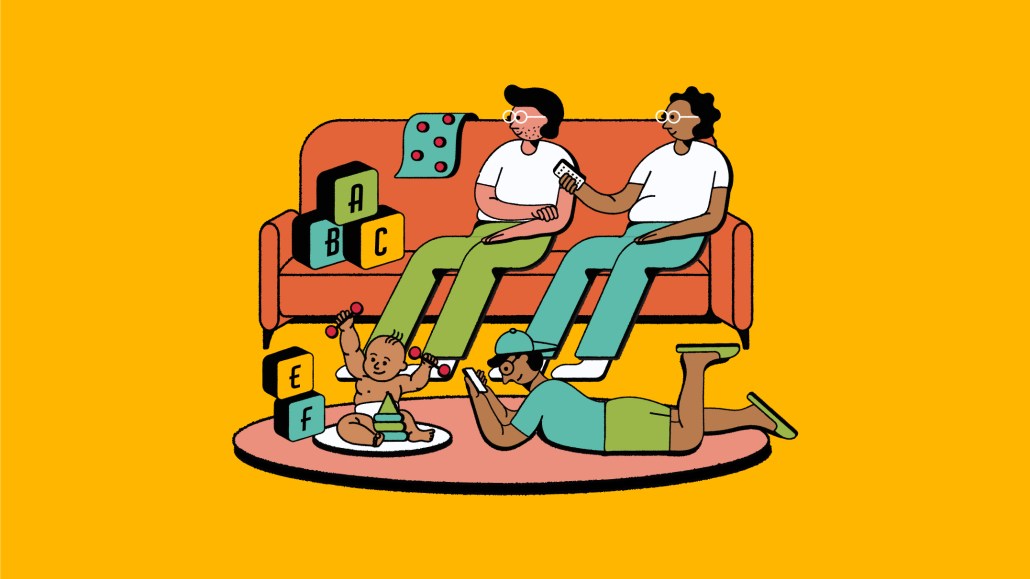Secure your place at the Digiday Media Buying Summit in Nashville, March 2-4
Covid or allergies? Zyrtec wants to capture attention on the question with its first ad campaign in a decade

Allergy medication brand Zyrtec is returning to TV and digital video advertising for the first time in a decade. The company is doing so as the ongoing pandemic has people more aware of allergy symptoms as some Covid-19 symptoms can be similar to that of allergies.
- Get back into TV, digital advertising as Covid-19 cases rise and more consumers search for “Covid or allergies”
- Launch its first sonic logo, along with a new tagline
- Rise to meet the Covid-driven changes to the conversation about allergy symptoms
“The allergy need state has shifted from seasonal to year-round,” said Jayne Lewis, commercial director for Zyrtec parent company Johnson & Johnson, adding that “more than ever consumers are actively seeking solutions to add to their allergy toolkits to relieve and prevent their unique symptoms.”
Google searches related to allergies in the U.S. have fluctuated over the last year, especially as new variants have been introduced amid the Covid-19 pandemic. The query for “Covid or allergies,” as an example, seemed to peak nearly a year ago, but rose again as cases in the U.S. were rising in December and again in mid-May amid another rise in cases, according to Google search trend data.
This month, the brand introduced four creative spots, including “Cashier” and “Los Flores” that will launch on linear television this month, with digital and social content following in August. The new campaign includes a brand new tagline and first-ever sonic logo, in addition to setting up bespoke characters who will bridge the digital and TV divide. The brand worked with Doner for the creative development and J3 for media buying for this campaign.
The new ads are designed to help allergy sufferers “Zeize the Day,” as the new tagline suggests. Put plainly: the ads position Zyrtec as the solution to help people get back to their day-to-day lives despite allergies.
“Our goal is to drive salience and emotional resonance with consumers, so that they can find us on digital when they want to learn more and choose Zyrtec when they are in store,” said Lewis, as Zyrtec recognized that Covid has changed the conversation about how allergy symptoms are represented.
Since Zyrtec launched its “Muddle No More” campaign in 2012, sneezing has become much more complex, given Covid symptoms. The brand wanted to connect with allergy sufferers on a more emotional level and show how Zyrtec can help them be their best selves throughout the year by removing sneezing from the ad. “The upbeat spot with a brandable sonic mnemonic and a feel good Funkytown beat does a great job of showing what’s possible when you get it right, not focusing on what’s wrong,” said Trace Cohen, Partner of marketing company, Metaforce.
It is unclear how much of Zyrtec’s advertising budget is allocated to the TV spots and social media advertising, as Lewis would not share overall budget specifics. According to Pathmatics, the company spent close to $25 million so far in 2022 on marketing efforts. Lewis noted that half of its spend is devoted to digital channels, and over the past few years, they have been gradually right-sizing the media mix between linear TV and digital channels in line with shifting consumer trends.
Zyrtec is not the only allergy brand that wants to connect with consumers on an emotional level. Allergy brands like AstraZeneca and Allegra have recently had campaigns that have been able to connect with their audiences on an emotional level in a meaningful way.
“Zyrtec appealing to an emotional connection with this campaign, associating its product with not only its customers’ needs but their very sense of self, is a smart way to make sure they’re always at the top of the consideration set even while people are bombarded with competitive choices at the point of sale,” said Margo Kahnrose, CMO at Skai, an omnichannel marketing platform.
The brand understands that consumers are savvy about allergies; they don’t need any allergy cues to understand that their allergies are being affected.
Looking into the future, Zyrtec expects to spend a considerable amount of money on connected televisions, as well as social media platforms. Lewis concluded, “times change and consumers have changed as well, and it behooved the brand to take a new approach.”
More in Marketing

Future of Marketing Briefing: AI’s branding problem is why marketers keep it off the label
The reputational downside is clearer than the branding upside, which makes discretion the safer strategy.

While holdcos build ‘death stars of content,’ indie creative agencies take alternative routes
Indie agencies and the holding company sector were once bound together. The Super Bowl and WPP’s latest remodeling plans show they’re heading in different directions.

How Boll & Branch leverages AI for operational and creative tasks
Boll & Branch first and foremost uses AI to manage workflows across teams.








